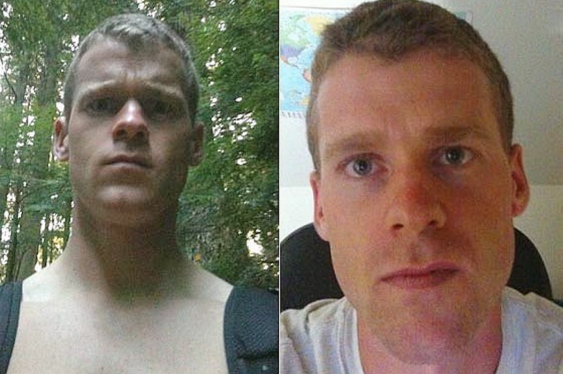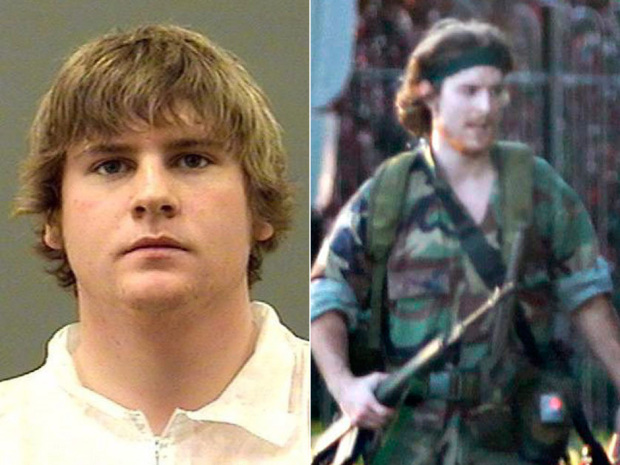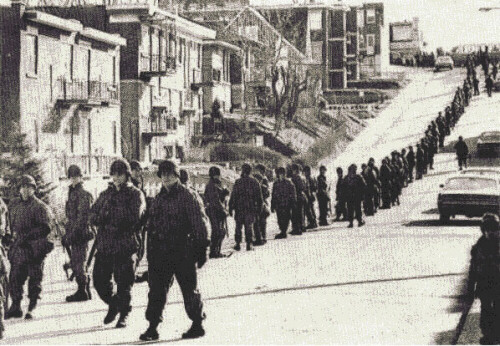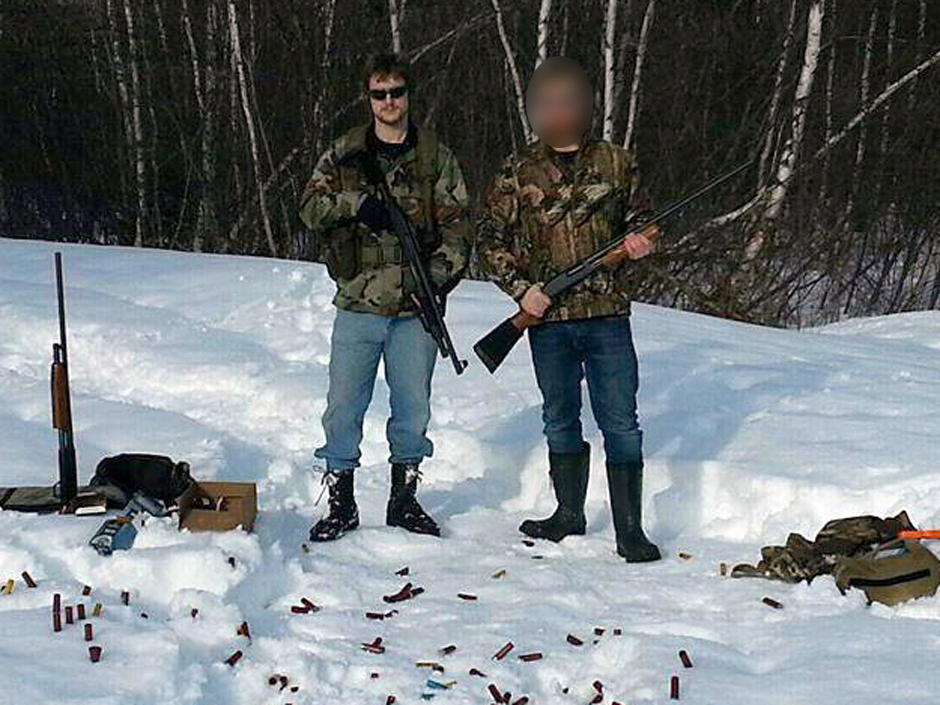Living in the Shadow of Mental Illness
Photo (Web Source). The dark shadows of depression and mental illness can be lifelong or sudden in onset. While cancer, heart disease and any one of dozens of other diseases are accepted and treated with respect, not so for depression and mental illness. They remain in the shadows. People experiencing these debilitating states are often cast aside where they are left to their own devices. Many military personnel, indeed, many front line emergency service workers, have felt that pain. Can you imagine a cancer patient being cast aside and left to his or her own devices because of a stigma being attached to cancer?
As numerous families have learned, the nature of the illness makes it difficult to reach out for assistance by either the victim or their family as the attached stigma casts an ugly net. This story continues to track those who have been caught at the margins of our society where failure to provide timely and ongoing assistance can have tragic consequences not only for those immediately affected but also across the mainstream.
Update: Times Colonist, February 16, 2020, articles by Louise Dickson, She got her gun back, then she killed herself,” and, Mounties decision to return gun to PTSD victim haunts her brother.
Summary: I don’t know how many read the above articles, but they contained the tragic details about young woman, Krista Carle’, who took her own life after suffering for years with PTSD. While tragedies such as this play out across Canada every week, the reason this story resonates so profoundly is that the final, tragic, conclusion took place here in Victoria.
Both articles were carefully researched and written by, Louise Dickson, a TC regular, who has captured the essence of what it means to be cast aside within a system that has every reason to pay close attention – when it’s one of their own.
If we don’t possess the ways and means to help those struggling with mental illness within our own organizations, what possible chance is there for persons found on the street and in obvious need of professional help? These points are vividly brought home by a local police officer who has chosen to speak out rather than remain silent even when, at one point in his career, he faced threats that charges of obstruction could result if he pursued the subject.
The 2014 Post
Public Support for those Struggling with Mental Illness
When a well-known celebrity like Robin Williams commits a final desperate act in his highly productive life, there is a brief but massive outpouring of grief as well as condolences to his family and friends. This is followed by a few bylines about the lack of public interest in assisting those struggling with depression or some other form of mental illness, then it all ends.
 While it was a sad end for Robin, each year across Canada thousands of individuals, young and old alike will succumb to the demons that dog their lives. Many will take their own lives. Tragically, some will also take the lives of others as their world closes in. Why does this continue unabated year after year? Many factors play a role, but the first step is recognizing, then accepting a problem exists.
While it was a sad end for Robin, each year across Canada thousands of individuals, young and old alike will succumb to the demons that dog their lives. Many will take their own lives. Tragically, some will also take the lives of others as their world closes in. Why does this continue unabated year after year? Many factors play a role, but the first step is recognizing, then accepting a problem exists.
Over the career of every police officer, each will attend many dozens of these violent acts and if a man is involved, a weapon is often close at hand. Whenever that final act is turned outward it often results in the death of innocent men, women and children. Immediate family members are often the target. Every community in Canada has experienced the trauma of a family murder-suicide., or murder, then trial, where all the sordid details are played out. During these trials, all many of accusations and explanations are cast about. In cases where dozens of strangers are wounded or killed, as we observe almost every day in the United States, people just shrug their shoulders. In Canada, we are fortunate to have very few of these incidents, but when they do happen, there is a flurry of media activity and then it all dies down and all but forgotten except for a few flowers and stories on the anniversary of the event.
In my police career (1964 – 1994) there was no training in dealing with the mentally ill and, from what I have read on the subject, things have not improved. At least in my day when we arrested someone for ‘being a danger to themselves or others” that person might well end up spending a few weeks in the Riverview Mental Hospital (formerly Essondale) in the Fraser Valley or another mental facility. There they would be fully assessed and if they were truly running off the rails, they might be detained for a longer period. All it really took to have someone detained for a mental assessment was the signature of two doctors.
Part of the reason that things have become worse is that various governments, in the name of austerity, have removed much of the funding designated to help the mentally ill and their families. Also, traditional mental hospitals have all but disappeared in part because of abuses of the past. The worst part is that many of those who might be prone to violent acts (self-destructive or otherwise) have been dumped on the street, When Riverview closed its doors, 8,000 patients who flowed through the facility were displaced (read the section on “Aftermath of Closure” – read Riverview Mental Hospital) with many ending up on the street. These closures have been repeated in every Province across Canada and the chances of gaining help on the street were and continue to be next to non-existent. As it was for the police back then and is today, they remain at the front line of dealing with the fallout and that fallout often has tragic consequences.
When it comes to rifles and shotguns, the weapons most often used in violent incidents, the last vestiges of legislation that provided some control, have been removed in the name of what the gun lobby in the US and Canada might refer to as the “Right to Bear Arms”. In Canada, we still have a measure of control over handguns and restricted weapons, but as for “long arms”, it is no more difficult to buy a shotgun or rifle than it is a BBQ.
While less than 30% of Canadians own a firearm, 90% of those weapons are long guns (rifles, shotguns, etc.). Admittedly, few people owning weapons ever resort to violence, however, each year there are hundreds of violent episodes. When a particularly tragic event occurs, there will be a brief splash in the media, then calls for better regulation, but when the clamour dies down, it is business as usual. The sad fact is, neither gun control nor arrest, will deter a committed individual from killing themselves or others.
Dangerously close to home:
May 26, 2012: Two individuals, Chinh Diem Huynh and Huong (Andy) Tran, was shot and killed at a restaurant Tran owned in Burnaby, B.C. Police believe the victims were two of ten persons targeted by the killer Angus David Mitchell, (26) (photo left) a resident of Victoria, B.C., who lost the battle to the demons that dogged his life.
The previous day Mitchell shot and critically wounded another man on the list (Link: Burnaby Killings). Mitchell was tracked down and after being surrounded he did what many do in similar cases, committed ‘suicide by police’, that is, he opened fire as his last  desperate act of defiance.
desperate act of defiance.
On June 5, 2014: Three RCMP Officers in Moncton, N.B., Constable Georges Gevaudan, Constable James Larche and Constable Joseph Ross, were killed and two others wounded when another young man. Justin Bourque, (24), went on a shooting rampage. The police officers killed and wounded were targeted by the killer who gave no reason for his acts of violence. The reasons may forever remain locked within his mind.
As an exceptional testament to the professionalism of the RCMP who tracked him down and arrested him, they did so without firing a shot. They could have brought him down in a hail of bullets and no one, but no one would have issued a single word of complaint.
In each case, it was soon established that both men had histories of battling mental illness and that both the families and police were aware of the emerging instability and of the men having access to firearms. While neither had a criminal record, there was ample evidence suggesting the deadly combination of mental instability and weapons might at some point explode into violence.
Photo: Posted by Justin Bourque (above, left) on this Facebook Page.
The following comments were taken from a National Post Article: “A disturbing image of the suspect as anti-police and pro-gun has emerged from what appears to be his Facebook page. His profile picture shows two men holding guns with bullets scattered around them. Another gun is on the ground nearby. The account paints a picture of guns and extremist anti-police views. The account also posted an earlier photo on Wednesday with the caption “if you have a problem with law-abiding citizens being armed, then you are the reason law-abiding citizens are armed.”
“Within hours of the shooting, someone posted the lyrics of a Megadeth song to the Facebook account. They say, in part: “Ever think maybe it was meant to be this way? Don’t try to fool us, we know the worst is yet to come. I believe my kingdom will come.” Megadeth is the same band that Matt de Grood, the suspect in the Calgary stabbing deaths of four young people, posted just prior to the massacre in April.” (Full Summary In National Post)
If these were isolated incidents they might be written off as part of the challenge of maintaining the delicate balance between individual rights and societal safety, but over the past decade, dozens of murders and woundings of police officers and civilians have occurred with increasing frequency in similar circumstances. The killing of five RCMP Officers in Mayerthorpe, Alberta in 2005, the worst single incident in RCMP history, traces a similar combination of mental instability, anti-police (anti-authority) attitude and access to an arsenal of weapons, a pattern of which the RCMP in Mayerthorpe were well aware. (Link Here). In each of the three cases, it appears police felt they had no authority to intercede.
Mental Illness: Slipping through the cracks:
The larger issue, of course, is the fact government, in a quest to cut budgets, have removed most of the funding and support that may have helped some of the mentally ill and their families cope with the demons that dogged them. Certainly, not everyone could be helped, but that does not mean we just wash our hands of the challenge by turfing these people onto the street and hope for the best.
Neither has it helped that many of the constraints on ‘long guns’ have been systematically stripped or made so unintelligible as to be unenforceable. That being said, police officers and courts cannot dodge responsibility in working to keep weapons out of the hands mentally ill persons who cause concern to their families or others. Angus Mitchell and the Burnaby murders is a classic example of how things can go sideways in a short period when reasonable oversight is lost in the paper shuffle.
Sometime before the murders, Mitchell walked into a Saanich, B.C. Medical Centre with a rifle slung over his shoulder. He was clearly disturbed but fled before police arrived. With a dangerous situation evolving, the man was tracked to his home in Victoria where he was arrested under the Medical Health Act and his rifle seized. After being released (there is no mention of his being charged) Mitchell later came to the Police Station to retrieve his rifle. For some reason not mentioned in the article, it was returned. Some days later he used that same weapon to critically wound one man and kill two others in Burnaby. Weeks after the tragedy, someone obviously close to the situation lodged a complaint with the Office of Police Complaints Commissioner (OPCC). The complaint asked the question, “why was that rifle returned to a man who exhibited a potential for violence?” (Background Report)
Following an investigation by a team from the Vancouver PD, the Commission agreed with the police finding which stated in part: “…the officers showed no misconduct in returning the rifle to Angus David Mitchell”. But, rather than explaining why the officers felt compelled to return the rifle, the report went on to state: “…the tragic outcome of any event cannot be used to define the conduct of police officers from the perspective of hindsight.” Really? In my thirty years of police experience, nearly every complaint lodged against a police officer involves “hindsight” of some kind.
The question remains, ‘why’ did the police officers return the rifle? There were clearly reasonable and probable grounds to believe the man was mentally unstable and not only that, he had recently acted in a threatening manner with that very same rifle. Just carrying a rifle slung over your shoulder along the streets of Victoria (or any Canadian city for that matter), would be grounds for the police to intervene. Police have certainly done it many times with imitation weapons and have likely kept or destroyed many of those imitation weapons.
In this case, the man was also arrested under the Mental Health Act and held in custody for a period of time. The police officers returning the rifle would (or should) have known the entire history of that file. While there is no way those officers could positively know that man would go out and kill or seriously wound someone with that rifle, it is something that most certainly must have crossed their minds. It is a burden they shall carry for the rest of their lives.
While the article mentions the man had made an application to have the rifle returned, it does not state whether such an order was made. If a court order was made, then clearly the officers would have been obligated to make a return at some point (I qualify this below and in footnote (1)). The court order would be the end of the story as far as any complaint against the officers and the Vancouver Police would not have been called upon to waffle the wording of why the complaint was not justified. In any event, with the case concluded, it was back to business as usual with little in the way of change being made to prevent a future similar occurrence.
Having tracked these three cases as well as a dozen others over the years, in recent times eight RCMP Officers, as well as many other police officers and dozens of civilians have been killed in similar gun-related circumstances. It is clear that for some individuals the combination of mental illness and firearms is a volatile situation that needs to be tackled (2).
These cases provide a stark reminder to police officers that they must always act on the side of safety in seizing and keeping firearms out of the hands of those they have reasonable and probable grounds to think may use those weapons to harm themselves or others. It makes little difference to the loved ones of those who died that police followed the fine points of the law when ‘reason’ dictated otherwise. In many instances, it would be best to just seize the firearms, hold it and when ‘push comes to shove’, let the courts take up the issue of return. In our country, every person who feels they have been aggrieved by a seizure can apply to a court to have the matter addressed.
Just imagine the outcry if the courts, after listening to the plea’s of Angus David Mitchell, Justin Bourque or James Roszkoe ordered their weapon(s) returned. The public scorn would be so great that even the most conservative government would be forced to act in a manner that would tighten the regulations.
My advice to former police comrades — when you must decide whether to keep the weapon or not and short of a court order, force the applicant to get a court order. If push comes to shove internally, ask for a written order from a senior officer, preferably the Chief Constable or Detachment Commander. This might also force some changes to our laws. It might also make it seem more worthwhile to allocate more funds to helping he mentally ill and their families.
Harold McNeill
Detective Sergeant (Retired)
Note: Having been twenty years out of the service, many things have likely changed in the policing world, but in speaking with several retired and currently serving police members, all agreed that just accepting the status quo in these matters is not an option.
Links to Other Editorials:
The Men in Mental Health: A blog post by a young family friend who is currently practicing in Perth, Australia. Perhaps you have wondered why men predominately dominate the headlines when mental breakdown ends in violence. Read Dr. Jon’s article.
Mental Illness, a rising crisis on the street, link here. Link Here
Abducted, the First Twelve Hours The challenges faced by people living on the street. (August 2014)
Hindsight and Complaints Against Police: This is the original post that was withheld when the three RCMP members were killed in Moncton. Living in the Shadow is the replacement post.
Twenty-First Chromosome Leads to Enlightenment: A discussion of intolerance. (November, 2012)
Preserving our Civil Liberties: Why it is important that we should all care. (July 2011)
Crime and Punishment: Ideology trumps reason. Comments about the Federal Governments War on Crime. (September 2011)
Terrorists or Warriors: What is the Difference. Some of the little-discussed background to “Canada’s Terror Trial”. How and why the public is mislead. (February, 2012)
Cold Lake High School Years: The Journey Begins, A personal story of the effects alcoholism can have on a family. (June, 2014)
Part 1: Oversight of Police and Security Services For those having an interest in security matters as they relate to Bill C51, I think the background provided in the article will prove interesting. It is not all that many years back that our government turned loose the Security Services in a very similar manner and it turned out very badly for a lot of people including those in the Security Services
Part II: Conspiracy to Bomb the BC Legislature On July 1, 2013, at about 9:30 am, a contingent of some 50 or more RCMP members in plain clothes milled about the B.C. Legislature grounds in Victoria in anticipation of a major event. Then, on the command of a senior officer, two plain-clothes officers swooped in and grabbed a pair of dangerous terrorists who had just planted several pressure cooker bombs. The news would soon flash around the world as a shaken Premier of B.C. and Prime Minister of Canada made statements about a catastrophe having been narrowly averted. But, after the arrest, things took a strange twist.
The Secret World of the Canadian Border Services: (September 2014) A Police Related Story. Would you believe the CBSA arrested over 10,000 people last year and 20,000 in the last three? Many remain is secret jails across Canada. Hard to believe? Take a few minutes to read this background material.
Many other posts are provided in Index Category Index (all sections) Editorials and Tim Hortons Morning Posts. Got to the Home Page.
1. Mea Culpa:
Many times police officers are faced with doing ‘what is right’ versus ‘what is technically required’. While most will do what is right, some prefer the path of least resistance, the path that is more easily justified. When issues arise that clearly suggest policy or legislation is simply inappropriate or may even be counterproductive, officers must occasionally step out on a limb to do the right thing. The worst that could happen in a simple seizure is a court might step in and rap the officer’s fingers. While mea culpa’s might be called for, they will be few and far between. This is a much better outcome that than putting a weapon in the hands of a mentally ill or dangerous person.
2. An example of what can be done using ‘Terrorism” as an example:
Since September 2001, our country has embarked upon a full-fledged war on the boogeyman of terrorism and along the way has demonized a whole segment of Canadian citizens. It might well be argued, “Well it’s working, isn’t it? Over the past twenty-five years, not one person has been killed or injured as a result of a terrorist act committed in Canada!”
That would be correct of course, but it could also be said with certainty if eight RCMP officers, as well as a number of City and Municipal police officers, along with dozens of civilians, were killed in Canada by persons identified as terrorists, our country would currently be in a state of lock-down. We would be spending billions (or trillions) to fight the threat and we would enact the most draconian pieces of legislation to help stem the threat.
Oh, I forgot, the Government has already engaged the last two items and no one has yet to be killed or injured. Either terrorists in Canada are extremely inept (like those at Tim Horton’s, Via Rail guy or that hapless couple who threatened the BC Legislature) in their planning and implementation or they just do not exist in the manner and number we have been lead to believe. Give an average twelve-year-old with access to the internet could figure out how to derail a Via Rail train, why did it take a University-trained professional, weeks and weeks to figure out how he might go about the task.
As far as terror is concerned, just wait and see what happens if by some chance a police officer or citizen in Canada is killed or injured by someone roughly identified as a terrorist. Forty-five years earlier, in the 1970s during the Quebec Crisis, the Federal Government did just that by invoking the War Measures Act after a Quebec Minister of killed. The Act removed all protections under the Criminal Code of Canada (there was no Charter then). Until that point that Act had only been invoked twice in our history, first during World War I, then again during World War II.
Forty-five years earlier, in the 1970s during the Quebec Crisis, the Federal Government did just that by invoking the War Measures Act after a Quebec Minister of killed. The Act removed all protections under the Criminal Code of Canada (there was no Charter then). Until that point that Act had only been invoked twice in our history, first during World War I, then again during World War II.
Photo (Web Source): Canadian Armed forces troops marched into Montreal and other parts of Quebec during the “October Crisis”. Out of an abundance of caution, they also occupied Ottawa.
Of course last year in the face of no credible threat, the Federal Government invoked a new War Measures Act, calling it the Anti-Terrorism Act. Proclaimed in 2013, the new Act exceeds the old War Measures Act on almost every count. This little piece of legislative authority is designed to circumvent every aspect of the Criminal Code and Charter of Rights when an individual or a group becomes loosely defined as ‘terrorist’. Further, the Anti-Terrorist Act now includes such ill-defined crimes as ‘communicating’ with a group defined as ‘terrorist’. In short, ‘thought-crime’ has become a reality in Canada.
Imagine the good that could be accomplished if we took just a portion of the time, money and effort expended in chasing windmills and applied that toward helping Canadians “Living in the Shadow of Mental Illness”? We could very likely save hundreds of lives and salvage many dozens of families caught in a downward spiral.
Note on our History: “Everyone arrested under the War Measures Act was denied due process. Habeas corpus (an individual’s ancient right to have a judge confirm that they have been lawfully detained) was suspended. The Crown could detain a suspect for seven days before charging him or her with a crime. In addition, the attorney general could order, before the seven days expired, that the accused be held for up to 21 days. The prisoners were not permitted to consult legal counsel, and many were held incommunicado.” (for more see the Quebec Crisis)
hdmc
(3125)
Trackback from your site.



Comments (3)
Update: Times Colonist, February 16, 2020, articles by Louise Dickson, She got her gun back, then she killed herself,” and, Mounties decision to return gun to PTSD victim haunts her brother.
Summary: I don’t know how many read the above articles, but they contained the tragic details about young woman, Krista Carle’, who took her own life after suffering for years with PTSD. While tragedies such as this play out across Canada every week, the reason this story resonates so profoundly is that the final, tragic, conclusion took place here in Victoria. Continued in the article.